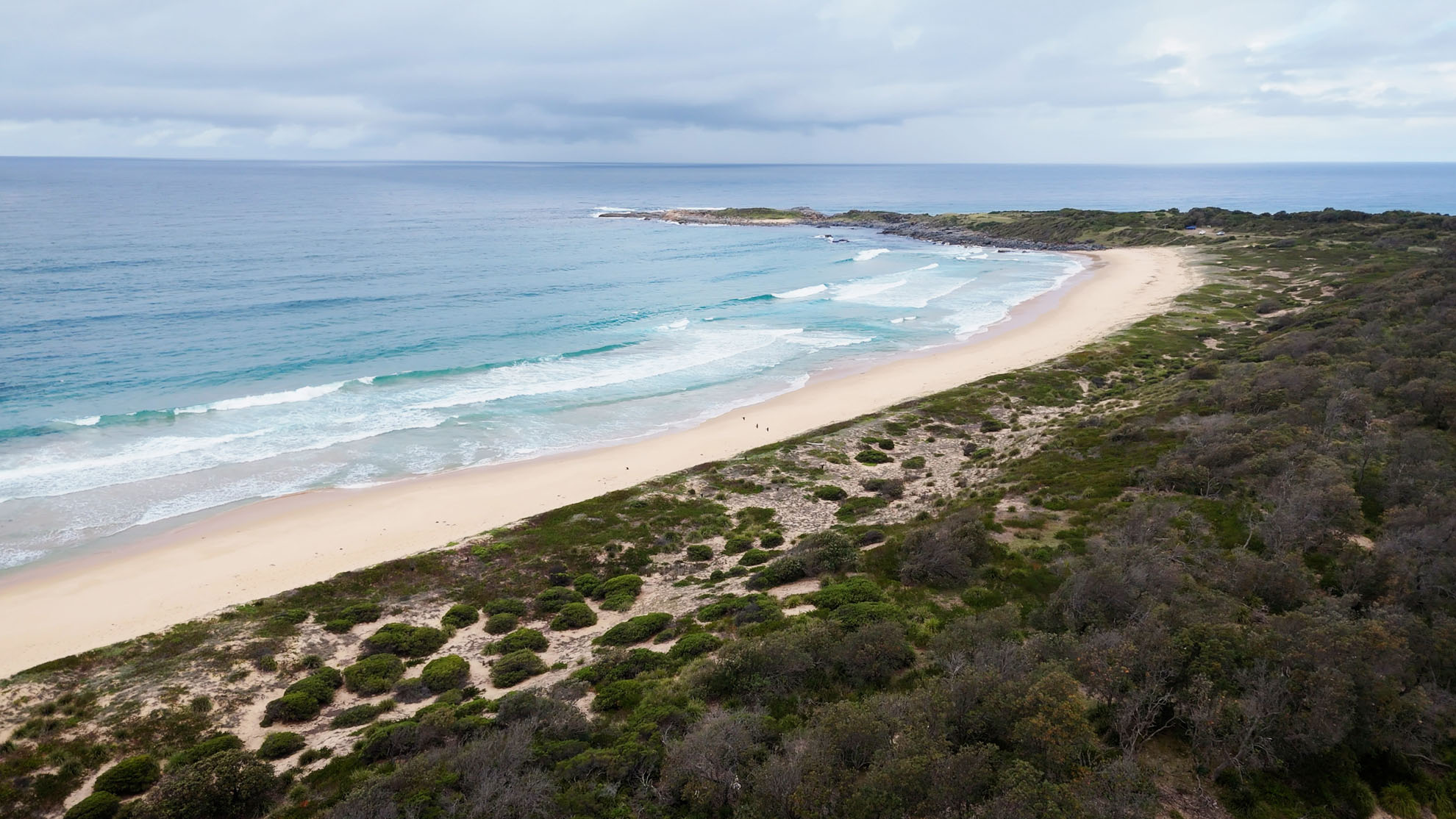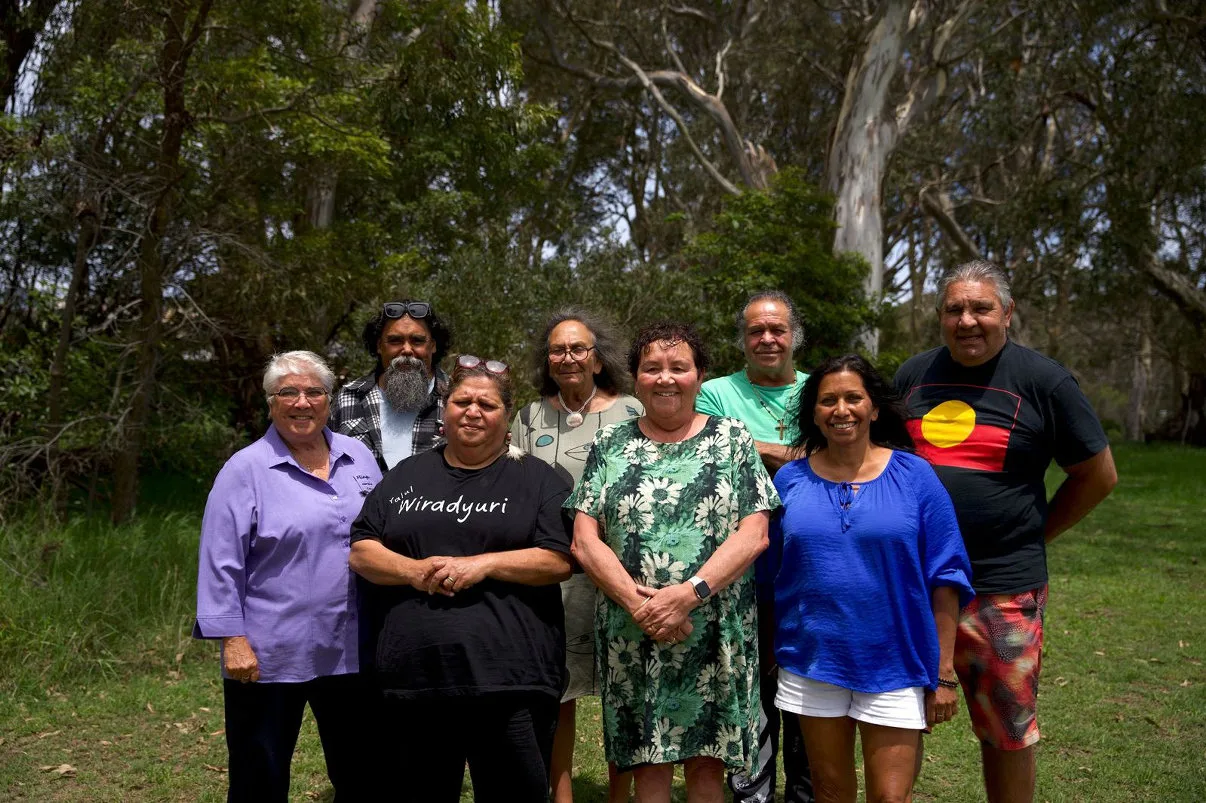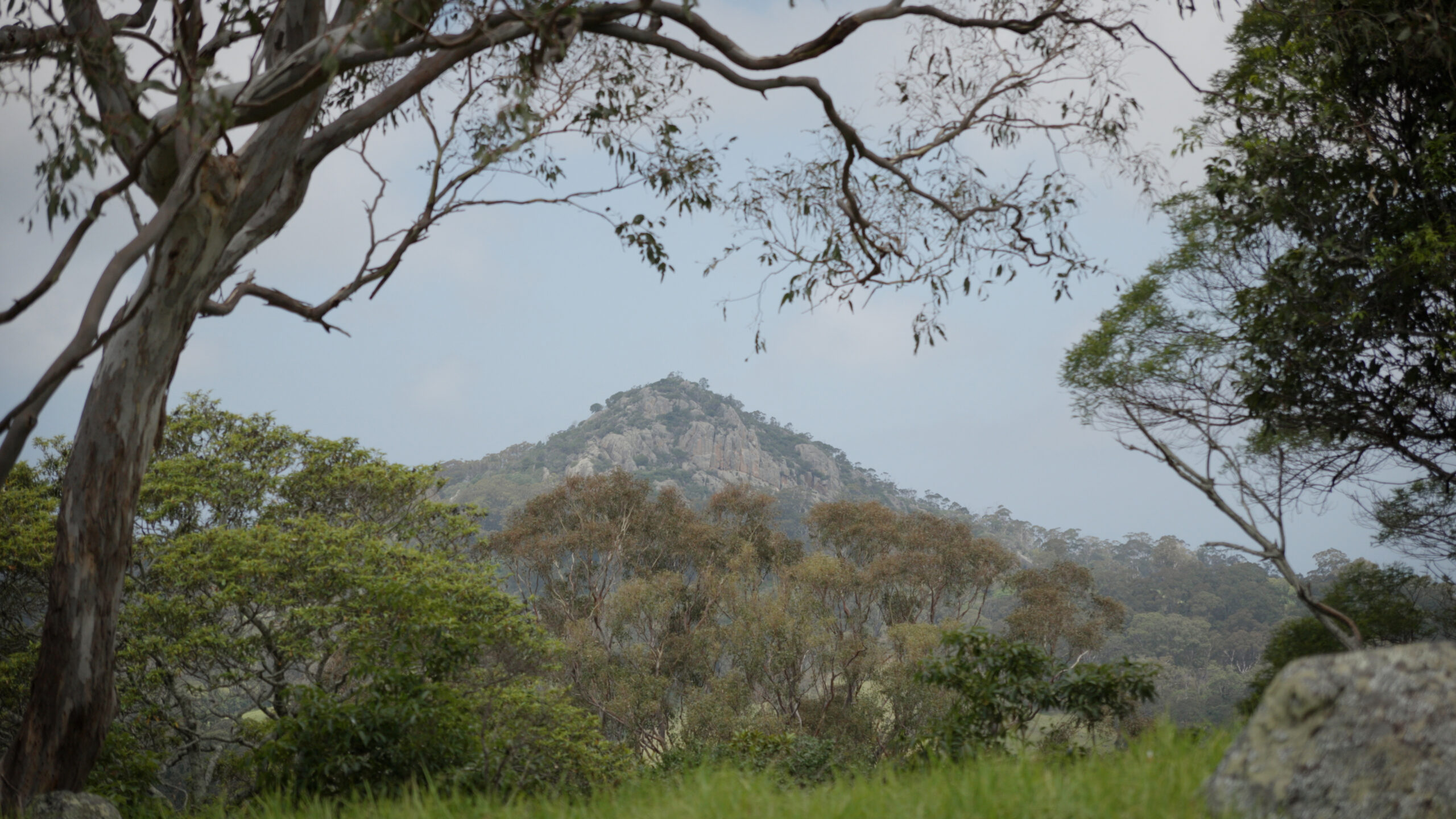Plants
Our use of plants includes medicine, food, resources, tools and accessories. We also use plants as indicators of seasonal changes and events.
All plants have multiple uses including food, medicine, shelter and tools.
Plants have medicinal, resource, sustenance and spiritual value.
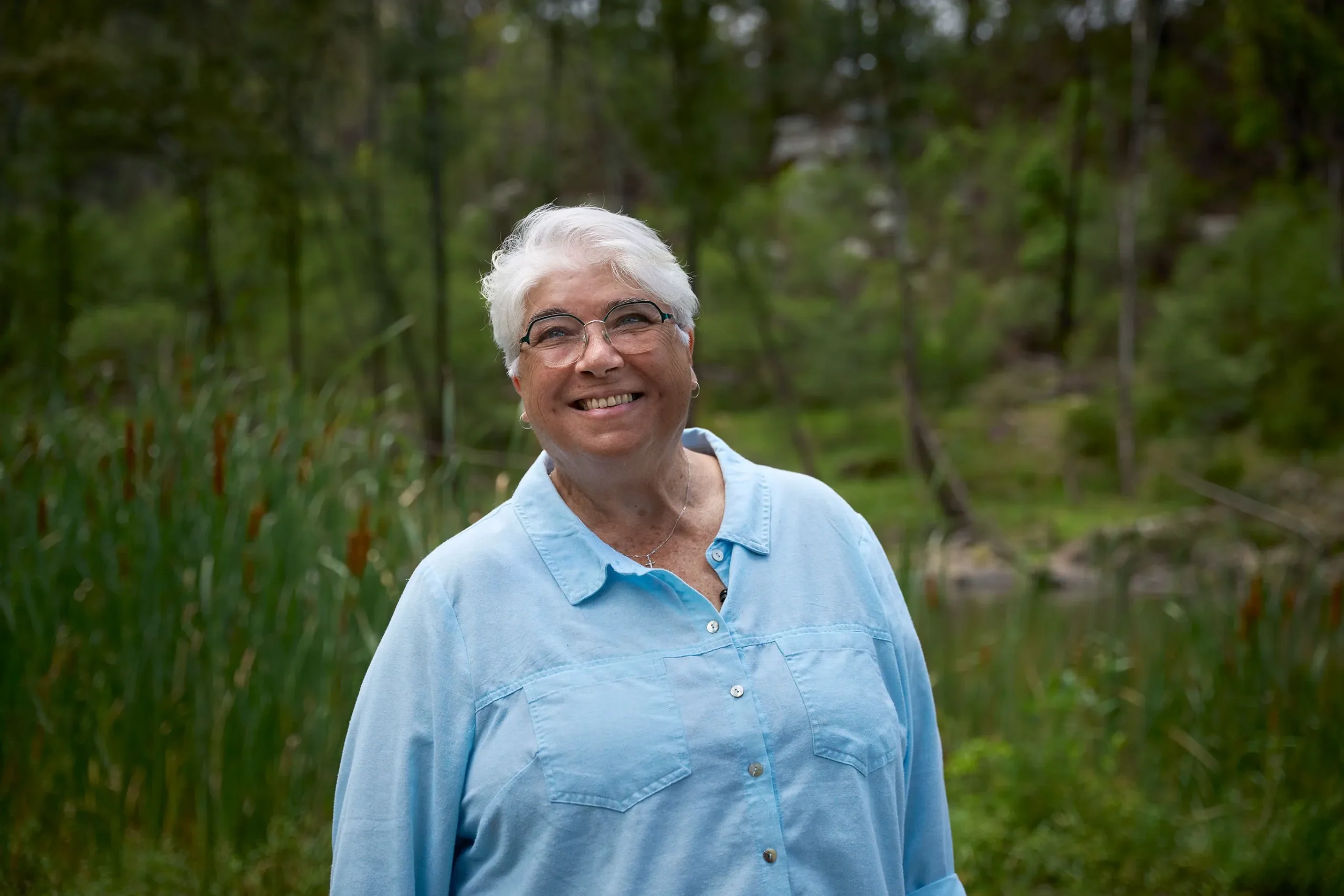
Patricia Ellis OAM from Moruya
Learn about the many ways we use plants
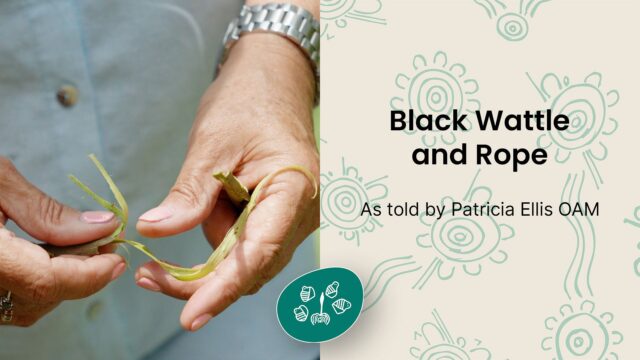
Black Wattle and Rope
Patricia Ellis OAM talks about Black Wattle, how to harvest it and teaches how to use it to make rope....
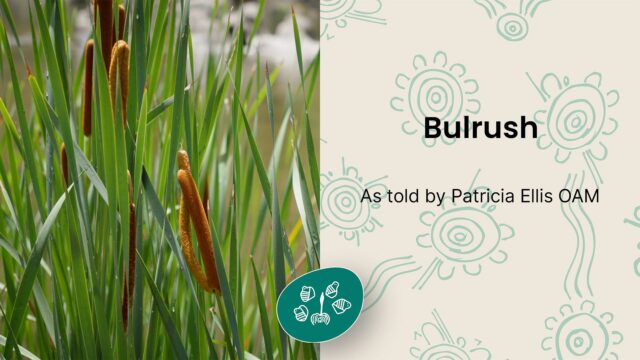
Bulrush
Patricia Ellis OAM talks about Bullrush, how to harvest it and teaches us how to make rope with it....
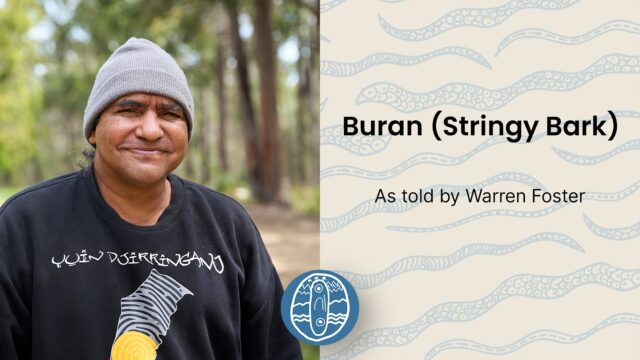
Buran (Stringy Bark)
Warren Foster talks about Buran and the multiple ways stringy bark is used....
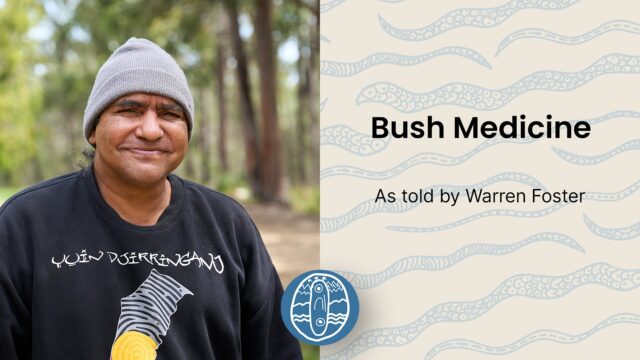
Bush Medicine
Warren Foster talks about bush medicine. He explains how taking medicine, eating bush tucker or eating the native animals was also a way of taking in the land and a strengthening of the connection to Land and Country....
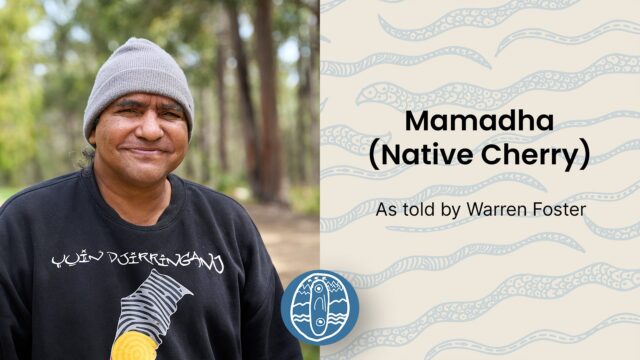
Mamadha (Native Cherry)
Warren Foster talks about the Mummuda, or native cherry. He explains how Yuin people see it versus how settlers see the plant. Warren talks through the uses of the plant....
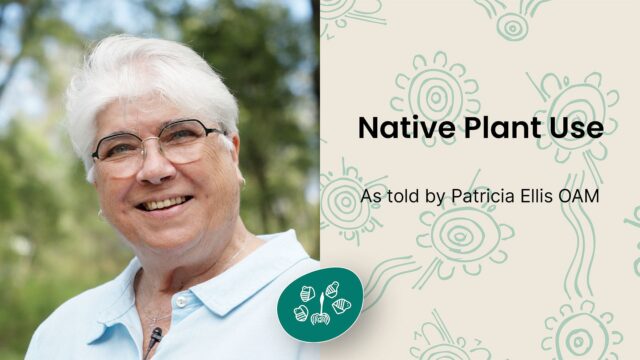
Native Plant Use
Patricia OAM Ellis talks about native plants, their importance and value and recipes using native plants....
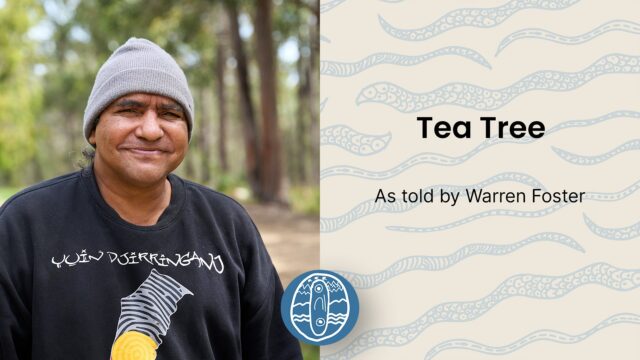
Tea Tree
Warren Foster talks about the tea tree plant, tea tree oil and the way it was used....
Native Plant Use
Patricia Ellis talks about native plants, their importance and value and recipes using native plants.

